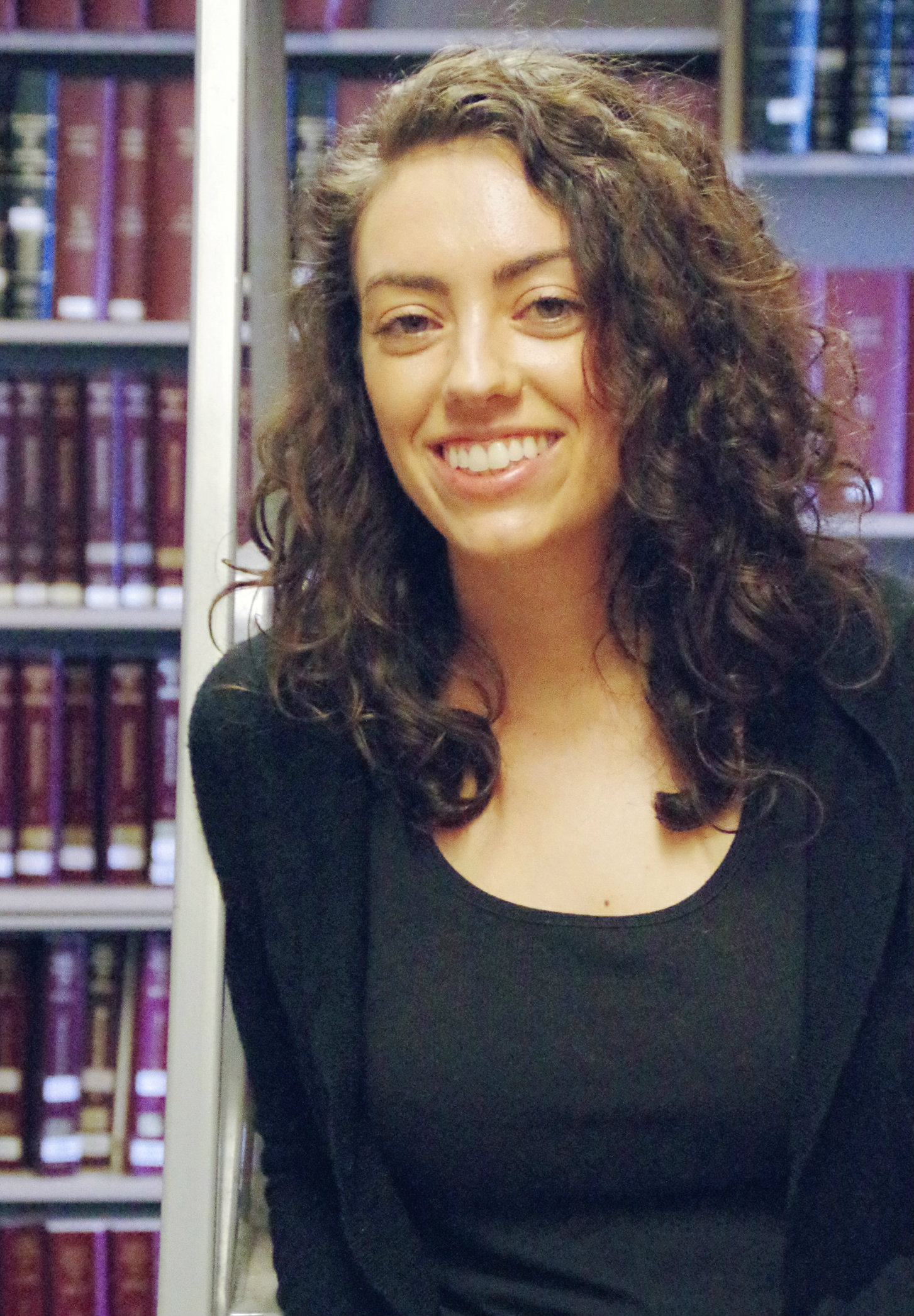
Rachel Ellis, GR’17
Thursday, August 17, 2017
By Jane Carroll
How prisoners understand the meaning of their incarceration is a popular topic of debate for sociologists who investigate inequality in the U.S. justice system. But one way of understanding the prison experience has been little studied: the role of religion. That topic intrigues Rachel Ellis, GR’17, who will receive a Ph.D. in sociology this August.
Her paper, “‘You’re Not Serving Time, You’re Serving Christ’: Neoliberal Religious Messages in the Shadow of Mass Incarceration,” received the 2017 Best Student Paper Award from the Sociology of Religion Section of the American Sociological Association. The paper is drawn from a chapter of her dissertation, which looks at the influence of religious messaging in prisons.
“My research has always focused on religion,” says Ellis, who was raised Jewish. “I started off getting interested in how religion operated within institutions. I was also very drawn to the contemporary problem of mass incarceration in the U.S. today, and I noticed that there were few studies on religion in prisons, even though prisoners who tend to come from disadvantaged backgrounds are also populations that are deeply religious, deeply spiritual.”
In 2000, the Religious Land Use and Institutionalized Persons Act mandated religious freedom in state-run prisons, she explains. “It resulted in an influx of religious programs in prisons, and yet there was very little research about that.”
With the bulk of published work focusing on men—who make up the majority of prison populations—Ellis decided to limit her scope to female inmates, both nonviolent and violent offenders. She spent 12 months conducting observations and informal interviews (taped interviews were prohibited) inside a state-run women’s prison, which she refers to as “Mapleside Prison.”
“The research involved observing official programs like worship services and Bible study groups and also secular programs for comparison,” she says. “I had conversations with women about their experiences and prior lives, and their faith.”
Various studies show that the experience of incarceration tends to be punitive as opposed to rehabilitative. Ellis’s findings indicate that religious messages—especially those of conservative Protestant and evangelical and black Christian denominations—reinforce this punitive model. She says, “State actors within the prisons promote messages that tell inmates, ‘You’ve committed a crime and now you need to improve yourself in order to be rehabilitated.’ And I found that religious messages often function alongside those state messages.”
For example, Ellis tells the story of one inmate who had become deeply religious once she found herself incarcerated for a drug offense as a repeat offender. The woman became extremely upset when the parole board denied her request for release. Ellis says, “She told me, ‘I went up for parole last week. The [Holy] Spirit was telling me immediate release, but the parole board said something different. I was really torn up about it.’ She said that a black Pentecostal preacher who volunteered at the prison advised her, ‘You don’t know what [God’s] plan is for you. You don’t know how many lives you touch in here. He might need you in here.’” The woman ultimately accepted the parole decision as representing part of a divine plan for her life.
At the start of her project, Ellis had anticipated that religious messages might provide an alternative to what she refers to as a neoliberal approach to incarceration—a focus on personal responsibility and self-improvement. “I thought being separate from the prison institution in the sense that a lot of religious programs are run by outside volunteers, that they might challenge punitive notions of incarceration,” she says. “I thought there might be more focus on structural inequality, particularly with respect to racial and social class disparities. However, in framing it as part of God’s plan, they promoted the notion of incarceration as a necessary rehabilitative step rather than a problem of structural inequality.”
Ellis believes these messages affect incarcerated individuals in two ways. “On the one hand,” she says, “religious messages were deeply powerful and deeply important to inmates. Sometimes they were the greatest source of hope and a great source of comfort. On the other hand, I think they reinforced feelings of personal failure in committing the crime that landed inmates in prison, and in that sense they promoted a sort of ‘bootstraps’ mentality that made individuals feel at fault for becoming incarcerated.”
She hopes her work will spark a discussion about how prison administrators decide which outside groups are allowed inside prisons to lead religious programs, as well an examination of what kinds of messages are promoted.
With her doctoral degree in hand, Ellis begins an appointment this fall as an assistant professor of criminology and criminal justice at the University of Missouri, in Saint Louis, where, in addition to teaching, she plans to turn her dissertation into a book manuscript and pursue further research. “I’d like to continue,” she says, “to think through how religion shapes the prison experience.”